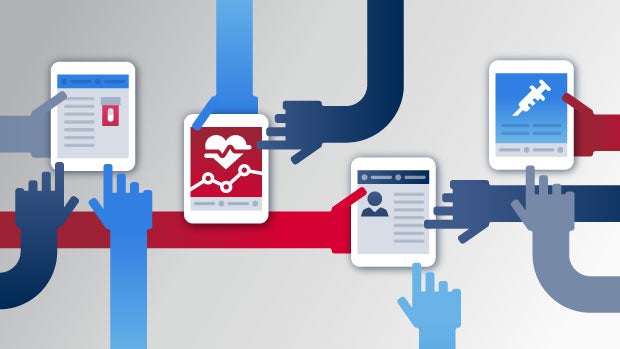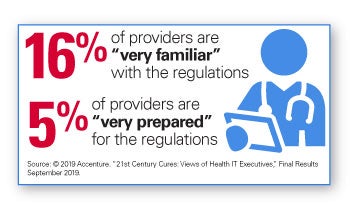

Consumerism, Population Health Drive Demand for Data Sharing and Transparency: Are Providers Ready?

As consumerism and population health management continue to take hold in health care, the demand and need for health data transparency and sharing will continue to grow. Patients will want more data and information on their health status from providers. And, they will want it in a usable format, regardless of where that information comes from and how it was generated. On the provider side, sharing patient information, particularly within a service area, will be necessary to better enable objectives around population health management.
In fact, the 21st Century Cures Act, a federal law that was signed in December 2016, directed the Office of the National Coordinator for Health Information Technology to develop a voluntary Trusted Exchange Framework and Common Agreement to streamline and enable greater connectivity among health information exchanges and their participating health care organizations to advance health information sharing nationwide. The first set of qualified health information networks are expected to be up and running by August 2020.
 Additionally, the act has provisions to prevent information blocking from health care organizations. The ultimate goal will be to promote interoperability among disparate electronic health records. Patients, among other stakeholders, will have access to the information exchange to obtain their personal health data from across the care continuum.
Additionally, the act has provisions to prevent information blocking from health care organizations. The ultimate goal will be to promote interoperability among disparate electronic health records. Patients, among other stakeholders, will have access to the information exchange to obtain their personal health data from across the care continuum.
There is no doubt that the law will have significant patient privacy and security implications for providers. What is concerning is that, according to an Accenture survey, only 5% of providers believe their organization is “very prepared.” What’s more, 17% of health care executives surveyed are “completely unaware” of the requirements. Accenture recommends that health care organizations take the following steps to ensure they’re ready:
- Ensure that technology and compliance leaders are familiar with the new rules.
- Assess and analyze the organization’s current interoperability provisions.
- Complete gap analyses and develop remediation plans for a 12- to 18-month timeframe.
- Manage both internal and external communications to help health care professionals and consumers adapt to the new rules.



